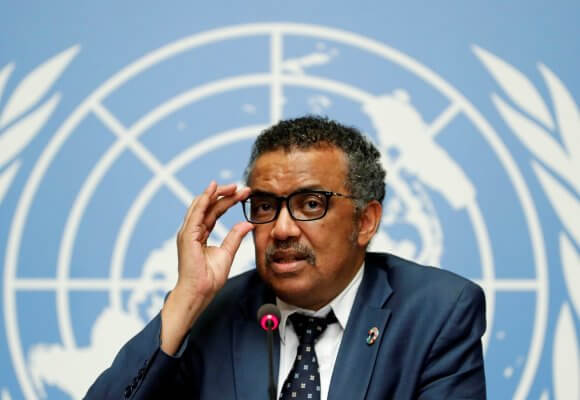|
LISTEN TO THIS THE AFRICANA VOICE ARTICLE NOW
Getting your Trinity Audio player ready...
|
High Court Declares Housing Levy Unconstitutional, Grants Stay Orders
In a landmark decision, the High Court in Nairobi Tuesday, November 28, declared the Affordable Housing Levy unconstitutional, citing its discriminatory nature and lack of a comprehensive legal framework. This ruling comes as a significant relief for salaried Kenyans who have been bearing the brunt of the levy since its inception in July 2023.
The court, composed of Justices David Majanja, Lawrence Mugambi, and Christine Meoli, found that the levy’s application to individuals in formal employment without justification violates Article 10 of the Constitution, which guarantees equality and non-discrimination before the law.
The decision also rendered sections 84, 72 to 78 of the Finance Act null and void, effectively nullifying the legal basis for the levy. However, in a twist of events, the court granted stay orders restraining the quashing of the levy until January 10, 2024.
This means that the levy will continue to be deducted from the salaries of formally employed Kenyans despite the court’s ruling. The stay orders were granted in response to a request by the Respondents in the case, led by lawyer George Murugara, who sought 45 days to comply with the court ruling.
Murugara argued that the government needs time to make necessary adjustments to its taxation procedures to avoid contempt of court. The court agreed to the request, allowing the government to continue collecting the levy pending the filing of a formal appeal.
The housing levy, a key component of the Finance Act, was introduced to finance the government’s ambitious plan to construct affordable homes for low-income Kenyans. However, the levy has faced criticism from its inception, with many arguing that it unfairly burdens formal sector workers while exempting those in the informal sector.
Ruto Defends Affordable Housing Initiative, Despite Court Ruling
President William Ruto Tuesday defended his administration’s flagship affordable housing initiative, asserting that the program has already created over 120,000 jobs in just eight months. The President made the remarks during a speech at the International Trade Union Congress (ITUC) hosted by the Central Organization of Trade Unions (COTU).
Ruto highlighted the project’s potential to significantly impact Kenya’s employment landscape, projecting that by 2027, it could generate over half a million jobs. He reiterated his commitment to creating employment opportunities, emphasizing that Kenya is a country of workers and that his administration is working on various strategies to expand the workforce.
The President’s remarks came hours after a High Court ruling that declared the Housing Levy, a key component of the affordable housing initiative, unconstitutional. The court found that the levy violated Article 10, 2 (a) of the Constitution, which guarantees equality and prohibits discrimination.
Despite the court’s ruling, President Ruto assured that the government is committed to ensuring that the affordable housing program continues to create employment opportunities. He stated that the government will work to address the constitutional concerns raised by the court and bring the Housing Levy into compliance with the Constitution.
The program has been criticized by many Kenyans for its lack of transparency and concerns about its impact on low-income earners. The court’s ruling on the Housing Levy presents a challenge for the government, as it casts doubt on the legality of a key component of the affordable housing initiative.
Kenyan Parliament Bans Kaunda Suit, Traditional African Attire
In a move that has sparked both debate and amusement, Kenya’s Parliament has banned the wearing of Kaunda suits within its hallowed halls. The decision, made by Speaker of Parliament Moses Wetangula, extends to traditional African attire as well.
The Kaunda suit, named after the late Zambian president who favored the style, is a safari jacket with matching trousers, often short-sleeved and worn without a tie. It has become increasingly popular among Kenya’s political class, with President William Ruto a notable lover.
Wetangula’s decision stems from his concern that emerging fashion trends are undermining the established parliamentary dress code. He clarified that for men, proper attire consists of a coat, a collar, a tie, a long-sleeved shirt, long trousers, socks, shoes, or a service uniform. For women, business, formal, or smart casual wear is applicable, with skirts and dresses falling below the knee and sleeveless blouses being prohibited.
The Kaunda suit had previously been tolerated within the parliamentary precincts, with some MPs known for their sartorial fondness for the style. Wetangula acknowledged this past leniency but emphasized that the time had come to uphold the established dress code.
The ban on Kaunda suits has elicited a range of reactions on social media. Some question why an African parliament would ban African attire, while others support the decision. A few have even taken a lighthearted approach, suggesting that the Kaunda suit has now become an exclusive presidential garment.
El Niño Death Toll Rises to 120
As the El Niño-caused floods swept the country, leading to loss of lives, displacement of families and destruction of property, the Kenyan government held an emergency Cabinet meeting Monday to address the situation.
The meeting was chaired by President William Ruto, who brought together relevant officials to discuss measures to mitigate the adverse effects of the El Niño in the country.
State House spokesperson Hussein Mohamed revealed that 38 out of the 47 counties had been placed under the alarm stage. These counties are affected by the el nino, which has so far manifested in flash floods, general flooding in lowland plains, rivers overflowing their banks, landslides and mudslides, loss of livestock, and destruction of farmland and infrastructure.
In a devastating turn of events, the government said Tuesday that the death toll from the El Niño-induced floods had surged to 120, with Tana River, Garissa, Wajir, and Mandera counties bearing the brunt of the catastrophe. Nine other counties remain on high alert as the floodwaters continue to wreak havoc.
The Principal Secretary for Internal Security and National Administration, Dr. Raymond Omollo, addressed the media, revealing the grim situation. Nine bodies were recovered in Mombasa, while four were retrieved from Lake Victoria, adding to the tragic toll.
The floods have displaced 89,098 households, who are now seeking refuge in 112 camps established across the affected counties. Search and rescue efforts have assisted 2,058 individuals, who are currently undergoing medical checkups at the camps.
The government has responded by distributing food, water, and essential non-food items to affected counties, including Busia, Marsabit, Isiolo, Mandera, Garissa, Wajir, Tana River, Lamu, Kitui, and Mombasa.
To streamline emergency response coordination, the government has established a Command Centre for Emergency Response, communication and information at Nyayo House. This center will provide daily updates on the flood situation at 3pm until the crisis subsides.
The center’s responsibilities include documenting and reporting flood-related information, providing early warnings and emergency response guidance to stakeholders and the public, and mobilizing resources to address the crisis.
The steering committee has partnered with 11 ministries, the Kenya Defence Forces, the National Police Service, the Kenya Wildlife Service, the Kenya Coast Guard Service, and the National Youth Service to enhance flood response capabilities.
The committee has also collaborated with the Council of Governors and the Kenya Red Cross Society to supplement emergency response and interventions. Additionally, Disaster Response and Security Committees have been activated in counties to coordinate disaster response and mitigation efforts.
The government has also allocated Ksh10 billion to affected counties to address the flood’s impact, with a promise of disbursing an additional Ksh10 billion soon.
















































LEAVE A COMMENT
You must be logged in to post a comment.